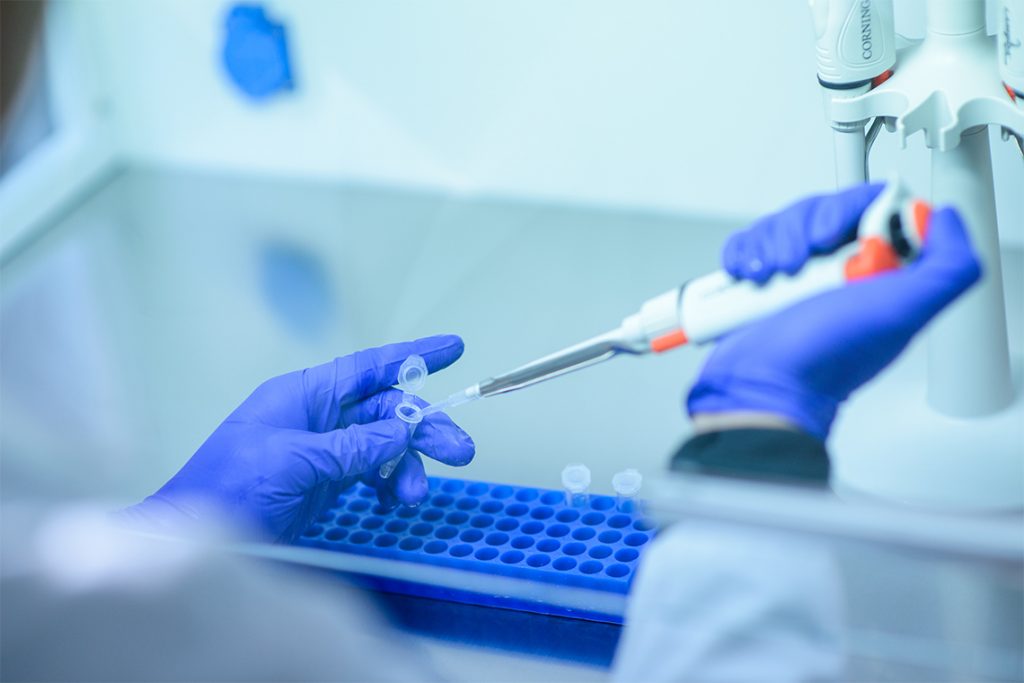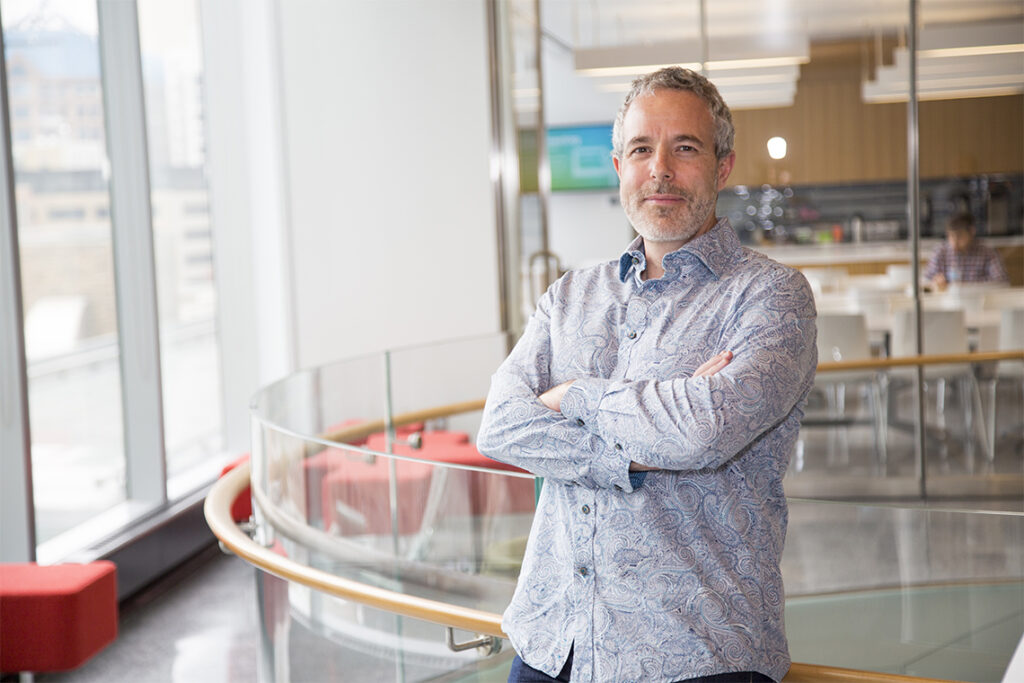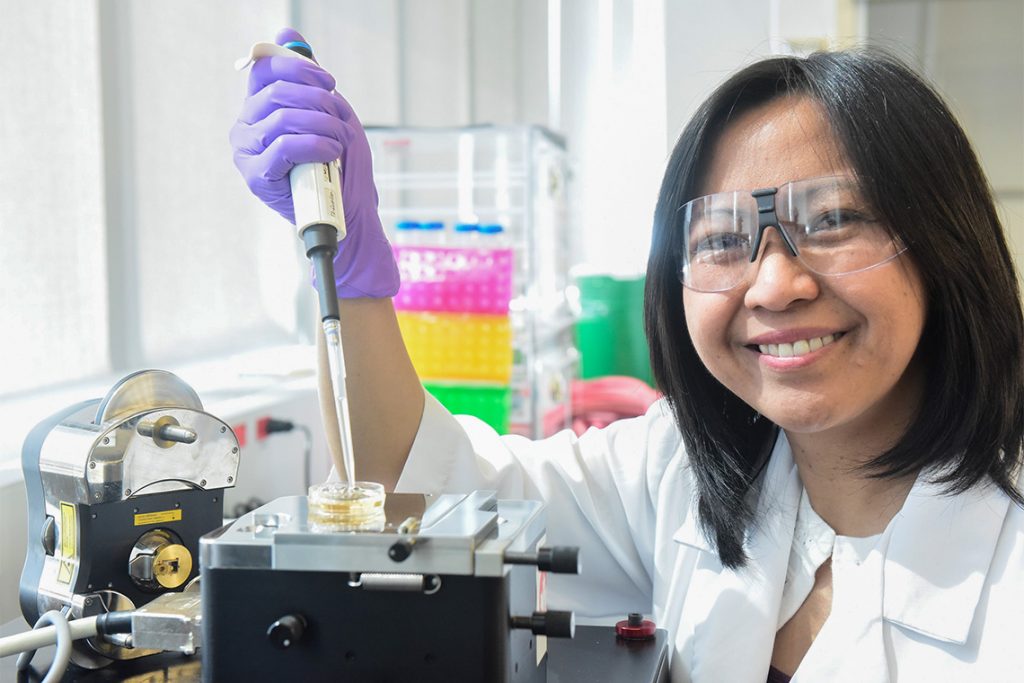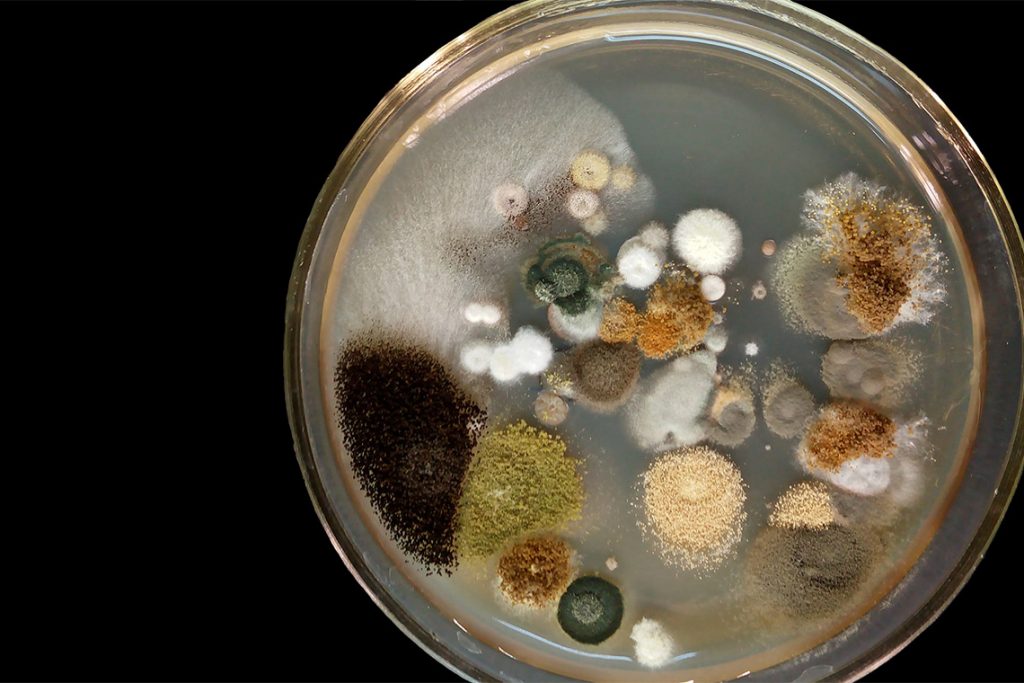U of T and health industry leaders urge investment in biomedical innovation

As the world continues to grapple with COVID-19, the University of Toronto is joining with health and pharmaceutical industry leaders to stress the need for increased Canadian support of bio-innovation and bio-pharmaceutical research, development and infrastructure.
Christine Allen, U of T’s associate vice-president and vice-provost, strategic initiatives, recently joined executives from Pfizer Canada, Telus Health and Sun Life at a virtual summit hosted by the Canadian Chamber of Commerce to discuss the importance of health technology and infrastructure in Canada.
Allen, an internationally recognized expert in the research and development of novel technologies for cancer detection and treatment, said growing the country’s capacity to produce life-saving treatments will require investing in a “pipeline of bio-medical innovations” and highly qualified personnel to support everything from scientific discovery to product development.
“We absolutely need investment in high-risk, high-reward research and pivotal studies that raise the readiness levels of new therapeutics and technologies that are emerging from academic institutions and hospital research institutes,” said Allen, who is also a professor at the Leslie Dan Faculty of Pharmacy.
The event was held as Ottawa seeks input on boosting Canada’s biomanufacturing and life sciences ecosystem after COVID-19 exposed gaps in the country’s capacity to produce life-saving vaccines and drugs to meet Canadians’ needs in a pandemic.

Christine Allen, U of T’s associate vice-president and vice-provost, strategic initiatives, says growing the country’s capacity to produce life-saving treatments will require investing in a “pipeline of bio-medical innovations” (photo by Nick Iwanyshyn)
Allen stressed the role of research and innovation at universities like U of T, whose bio-innovation ecosystem is at the centre of the country’s largest hospital and life sciences cluster – a critical contributor to Canada’s health security.
Yet, public investment in health research has waned in recent years. Allen noted that Canada spent about two per cent of its GDP on research and development in 2004, but the figure has since fallen to about 1.5 per cent.
She said Canada’s universities, including U of T, are calling for a return to the level of R&D spending of two decades ago.
“We need policies that strengthen our biomedical and pharmaceutical industries in Canada and encourage and enable collaboration between academia, our strong hospital network and industry,” Allen said.
“This will foster innovation, close the translation and commercialization gaps in our country, create and retain IP and retain talent in our country.”
One area she said is in “dire” need of investment is Canada’s network of specialized research and bio-manufacturing facilities, including containment level three (CL3) labs that have supported critical research into COVID-19.
At U of T, a CL3 facility made it possible for Scott Gray-Owen, a professor of molecular genetics in the Temerty Faculty of Medicine, to validate the findings of a Quebec company that makes a mask with an antimicrobial coating that can deactivate 99 per cent of the SARS-CoV-2 virus within minutes.

Scott Gray-Owen, a professor of molecular genetics in the Temerty Faculty of Medicine, used a containment level three lab to validate a Quebec company’s findings that its coated mask can deactivate 99 per cent of the SARS-CoV-2 virus (photo by Nick Iwanyshyn)
Allen said Canada is lagging behind other countries and regions, including China and the European Union, that have built dozens of containment level three labs to respond to disease outbreaks.
In addition to universities’ role in supporting critical health research, they also train the health professionals who see to Canadians’ medical needs, Allen said. U of T, for example, graduates about 2,500 students in the health fields each year, and nearly a third of people working in the Ontario health sector have a U of T degree.
“I’m always inspired by our students and I have been particularly inspired during the pandemic,” she said, citing examples of students helping front-line workers with errands, contributing to COVID-19 research and volunteering to help at vaccination sites hosted on U of T’s campuses.
The speedy development of an effective COVID-19 vaccine last year by Pfizer and BioNTech offers lessons in the value of supporting research and collaboration across the biomedical sphere – and of taking risks, said fellow panelist Cole Winnow, president of Pfizer Canada.
“We invested $2 billion to scale up our manufacturing processes before we knew the efficacious and safety profile of the vaccine,” he said.
“So, taking those key risks and planning for success was critical [for] us to be able to deliver this vaccine in record time.”



